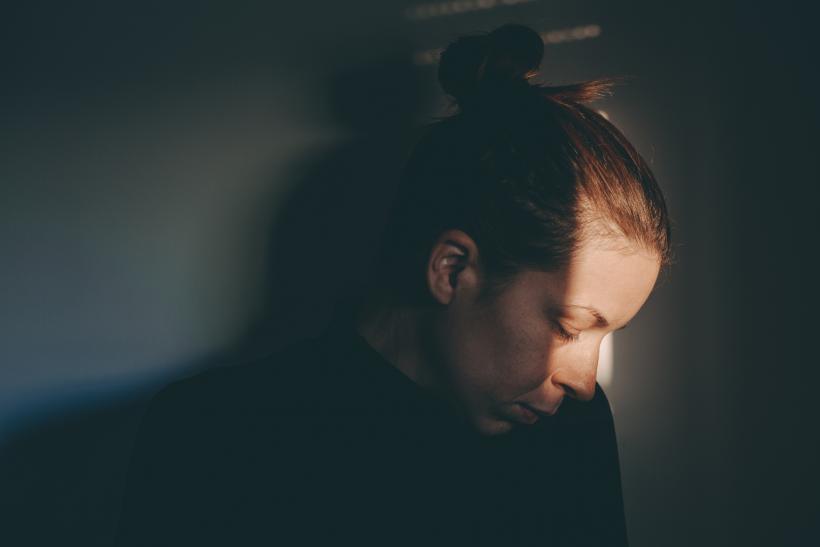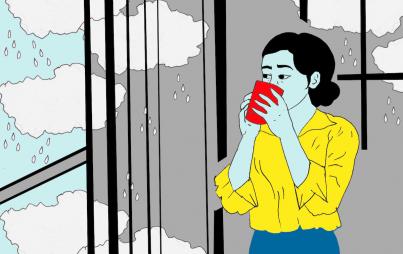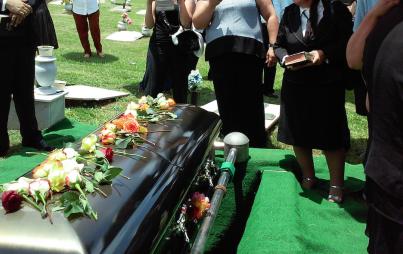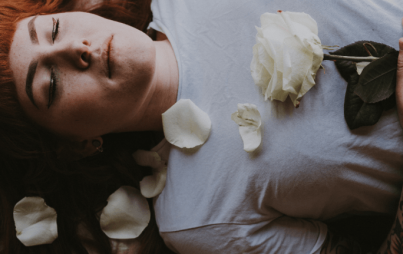
I love him in spite of myself. I have good memories of him. I don’t want him to die.
Many people in this world have been abused. Too many. Often by individuals they can never wholly sever ties from, no matter how much they might like to. Many of us have been abused by family members that are attached to other family members we actually like, and who are important to us. Some of us have never found the strength to confront our abusers, and have found it easier to pretend that it never happened. Even when that person starts dying. Don’t judge us.
In my case, my dad had an explosive anger that he took out on his children. He was verbally abusive, using both insults to shame us and screaming combined with violent gestures and a terrifying stature to cow us.
There is a definite sadness. An anticipation of loss mixed up with fear of the inevitable. I love him in spite of myself. I have good memories of him. I don’t want him to die.
Because he never physically hit us, I didn’t recognize it as “real” abuse until I entered therapy at 16 for a mysterious anxiety problem (ha). By the time I was anywhere near ready to even think about confronting him, I had moved out, was living on my own, and only seeing my parents at holidays and family events.
It was hard to think about disrupting the family. I was afraid of not being able to come to family gatherings, one of the few places I get to see my busy siblings and their amazing children — nieces and nephews I adore and admire. At the same time, in his old age, my dad has calmed down considerably. It’s been a long time since I’ve seen more than a hint of the volcano of a man he used to be. This doesn’t erase the damage he did, or make up for the fact he never apologized, but it does mean he’s easier to be around. For a few years, our relationship became bearable, albeit built on lies and denial. I paid a lot of money to therapists to work through my anger, my grief, and my disgust at both him and myself. I decided that I didn’t need a confrontation. I was okay.
Then he started dying.
Chronic Leukemia: The Lazy Killer
One day mom and dad sat myself, my brother, and my sister down and told us that he had been diagnosed with chronic leukemia. It’s not as bad as the acute forms of leukemia you tend to hear about that rapidly ravage the body. It develops slowly, and victims often display no symptoms for years. But in a routine checkup, an elevated white blood cell count raised red flags. The illness was diagnosed, but it was still too early for treatment to be necessary.
The downside is that chronic leukemia can’t be cured like other cancers. Chemotherapy will lower abnormal cell numbers back down to stage 0 numbers, but the cancer will continue to develop. At age 67, chemo would be difficult, traumatic, and even potentially fatal. So he’s decided to turn it down when the time comes.
There may be other treatment options, but there’s a good chance that this disease will kill him. We don’t know when. It may take several more years. But at this point, my dad, my abuser, is dying of leukemia.
What Is That Like?
For lack of a better word, it’s weird.
It’s weird enough seeing your childhood abuser grow old. The man who once towered over you like a giant begins to shrink. He’s lost weight. He can’t lift things like he used to. You start lifting things for him, in fact. His hair turns white, his skin wrinkles, and he begins to look like an old man. Hell, he’s one young adult’s bad decision away from being a great grandpa. You feel like you could pretty easily push him down the stairs of the old family house.
Since he’s been diagnosed, he’s become increasingly tired. I don’t know if it’s because the knowledge of the cancer is messing with my head, but he looks frailer to me. Even smaller and greyer.
No one in my family holds a Ph.D. in emotions, and I’m no exception. I have trouble naming my feelings. They get mixed up and confused even about simple situations, and the best I can sometimes do is say that I feel a thing in my stomach and it’s not very nice. Thinking about my dad these days brings up a tapestry of emotions that I’m no better at interpreting than abstract art, but with many months of careful consideration, I’ve nailed down a few of them.
I’m scared. I’m scared! My dad is dying. How can I not have a dad? What will I do if I get into trouble? What will mom do without him? How am I going to handle a loss that close? After all, in my youth, I learned that strong emotions are dangerous.
I’m sad. There is a definite sadness. An anticipation of loss mixed up with fear of the inevitable. I love him in spite of myself. I have good memories of him. I don’t want him to die.
I’m angry. Oh, god, I am so angry! I hate him! He was horrible to me; he messed up my entire life — made every goddamn day of my life a thousand times more difficult than it should ever need to be. He made me afraid of everything and everyone, and that fear has held me back from my real potential.
And how dare he make me feel scared and sad at the thought of him. I was content to fake pleasantries at Christmas and tell myself he didn’t deserve the real me anyway. To talk politics instead of feelings and ignore the fact that any closeness between us was an illusion. Now I feel sorry for him, for this man who never said sorry to me.
Merry Weirdmas
Family gatherings are even stranger now. Which feelings am I pretending to have, and which not? I need to pretend to be concerned but not scared, sad but not angry about it, sensitive but not like I notice that he looks like he might be dying, and definitely not like I hate myself for pretending to feel and for actually feeling anything at all.
Dad doesn’t bring up the cancer anymore. Shortly after the diagnosis, he would bring it up suddenly in family conversations, like he was crying out for attention. For help. For affection, maybe? None of us cried at the news. We sat in stunned silence. Perhaps like me, my siblings were wrestling with a confusing mix of emotions that had to be met with numbness to cope. Did that silence hurt him? Did he have any clue that his abuse stunted our ability to feel anything at all?
Now I wonder about the future. When the cancer catches up to him, will I find that I needed answers from him all along? Will I find the courage to ask him if he knew he abused us, and why he never begged for our forgiveness? Did he think that he deserved our tears, our emotion, our love? Did he stop bringing up the cancer because he realized he didn’t even deserve a single glance from us, let alone the show we put on to keep the peace? Did he look into himself, look over his life, and under the eyes of his god, did it dawn on him that three lives he was responsible for might have been better off if he had died a long time ago?
I’ve been told that all of these thoughts and feelings are normal when your abuser starts dying. I know that this is true and that whatever I feel is valid. But it’s difficult to reconcile all of these conflicting emotions with an uncertain future. The best I can do is try and accept that I don’t know what I will do when my abuser’s time comes, nor do I know if doing anything will make me feel better or worse. Like the doctor tells my dad, I have to take it one day at a time.








